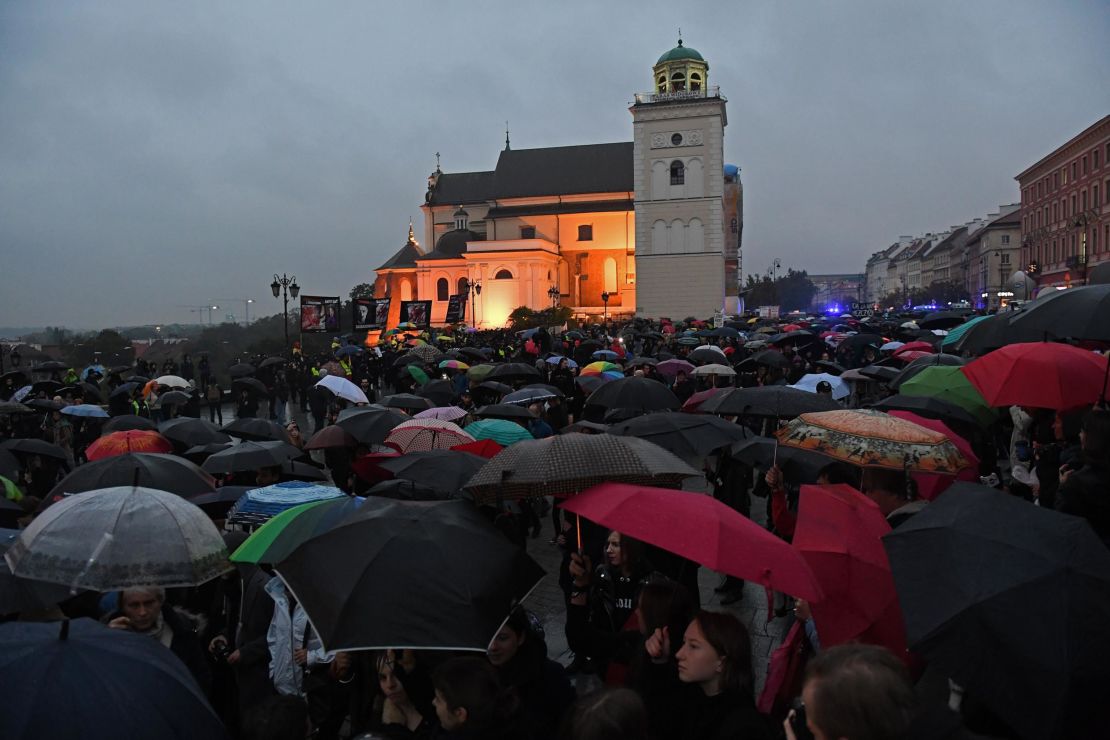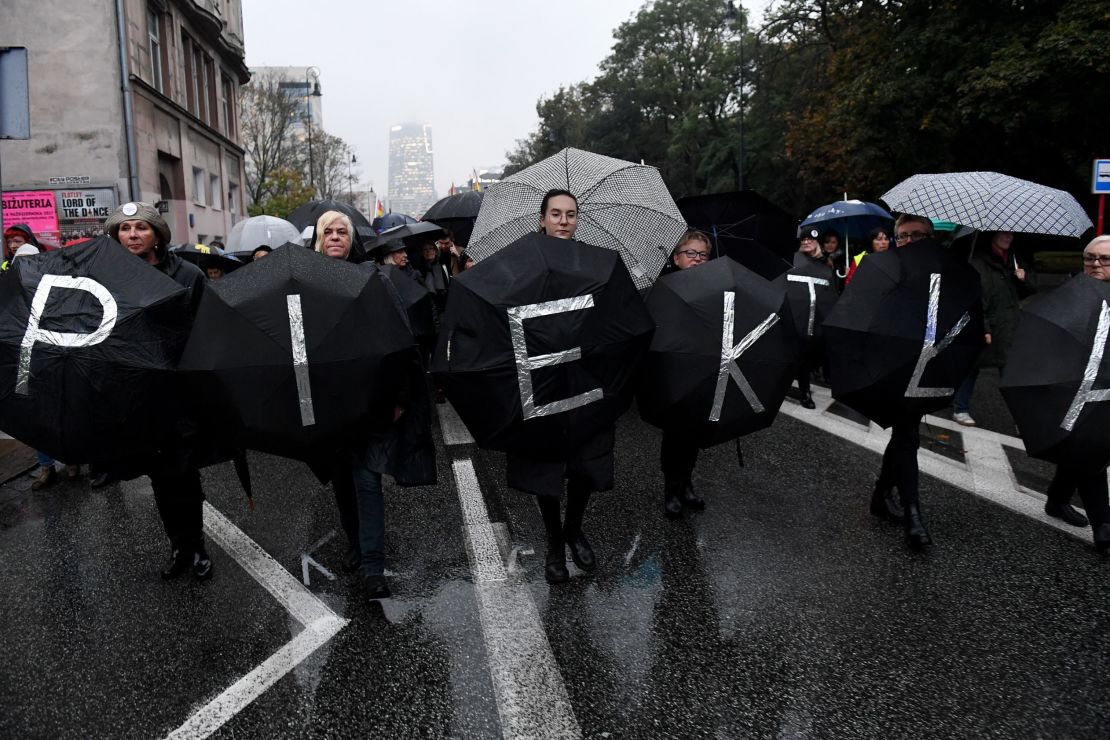The German clinic where Dr. Janusz Rudzinski works looks more like a country manor than a hospital, less than an hour’s drive from Poland, where many of his patients come from. On a bright winter day, he checks in on “Anja,” who’s just woken up.
CNN is not using her real name because the medical procedure she’s had is illegal back home in Poland: an abortion.
“Basically, as a woman, you have no rights when it comes to reproductive rights,” Anja says matter-of-factly, sitting up in her hospital gown. “Because in my country it’s illegal to undergo this procedure.”
Poland has some of the most restrictive laws in Europe when it comes to abortion. An estimated 80,000 Polish women a year go abroad or seek illegal abortions at home, according to Polish women’s rights groups. The procedure is legal in only three cases: if the pregnancy is the result of rape or incest, or if it endangers the life of the mother.
Now, the government is pushing through a new bill targeting the third and – most commonly cited – reason for abortion: damage to the fetus.

Lawmaker Kaja Godek has spearheaded getting the bill through parliament. Now, she wants doctors to stop prenatal screening to prevent what she calls “eugenic abortion.”
“The original idea behind prenatal tests has been completely distorted,” she told lawmakers in January. “Instead of treating and preparing parents and doctors to receive a child and help him, it makes it easier to choose extermination.”
More than 96% of Poles identify as Catholic and the issue of abortion here is tied not only to religion and the country’s resurgent nationalist politics, but also to its history as a formerly communist country.
“Under communism, due to a lack of access to contraception, abortion was widely practiced in Poland as a real means of contraception,” explains women’s rights activist and former politician Barbara Nowacka. “After the fall of communism, the law was tightened and now we face even more draconian measures.”
In 2015, the Law and Justice Party gained control of the government, ushering in a staunchly Catholic and nationalist agenda. Its lawmakers, urged on by Catholic groups, attempted to impose a total ban on abortion, drafting a law that threatened to imprison women seeking abortions and any doctor who performed the procedure.
Tens of thousands took to the streets in protest, unifying women’s groups in Poland and prompting protesting women to walk out of Sunday Masses across the country. While the government was forced to retract the proposed law, a new bill was introduced earlier this year, aimed at chipping away at the existing abortion law by eliminating one of the few ways women can legally seek an abortion.
Lawmakers will debate this bill on Friday. Women’s groups are planning for street protests in 50 cities across the country. Amnesty International says “solidarity demonstrations” will take place in other major European cities.
For critics of the bill, like Nowacka, the concern is not just the impact on women, but how it will affect doctors, who will fear being prosecuted.
“The underground will grow. Abortion tourism. Women traveling to Czech Republic, Germany, UK and Ukraine, will grow again,” she told CNN from her office in Warsaw. “What will have even more impact is that doctors are now afraid to send their patients for prenatal exams and scans.”

Across the border in Germany, Rudzinski says he gets roughly six Polish patients a week at his clinic, in various stages of pregnancy, seeking an abortion. Half, he says, come to him after botched abortion attempts. He recalled one particularly difficult case.
”A woman called me, saying she has no money and couldn’t travel but needs an abortion,” Rudzinski said. “She had stuck a wire inside her womb but now had a 40 degrees [Celsius] fever with extreme pain. She called asking me what to do. I told her: You may have sepsis, you need to go to hospital immediately or you will die.”
For many patients here, Rudzinksi and his clinic are not the first choice. Anja says she attempted to order an abortion pill online from an Indian supplier, but it didn’t show up.

“Lately, the Polish post hasn’t been delivering them,” she explains. “They never arrived. By that time, it was several weeks gone. I knew I had to take another step and find a place to undergo the procedure.”
Rudzinski was recommended to Anja through an underground network of women’s rights groups, and she says she’s happy to have the procedure with a doctor who can speak her language.
Anja already has an 11-month-old daughter with her husband. They plan to travel back to Poland after an overnight stay. She says she wants to have more children in the future but not right now. She also says that after this experience, she doesn’t want her little girl to grow up in Poland. Her advice for Polish women seeking an abortion?
“I say just go for it and leave this country and travel,” she says. “Get this procedure the way it should be done. Not underground. Do not risk your health.”

